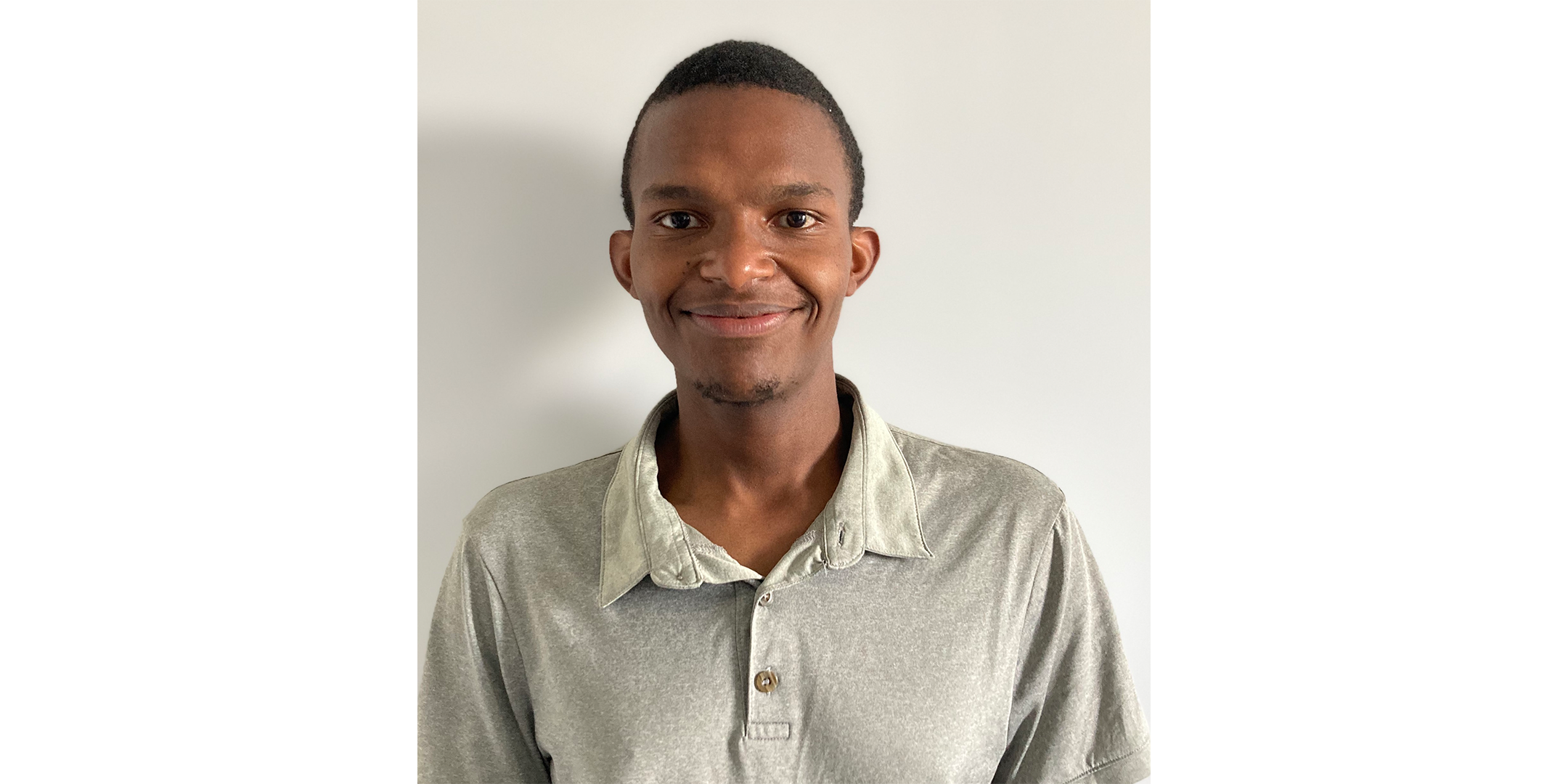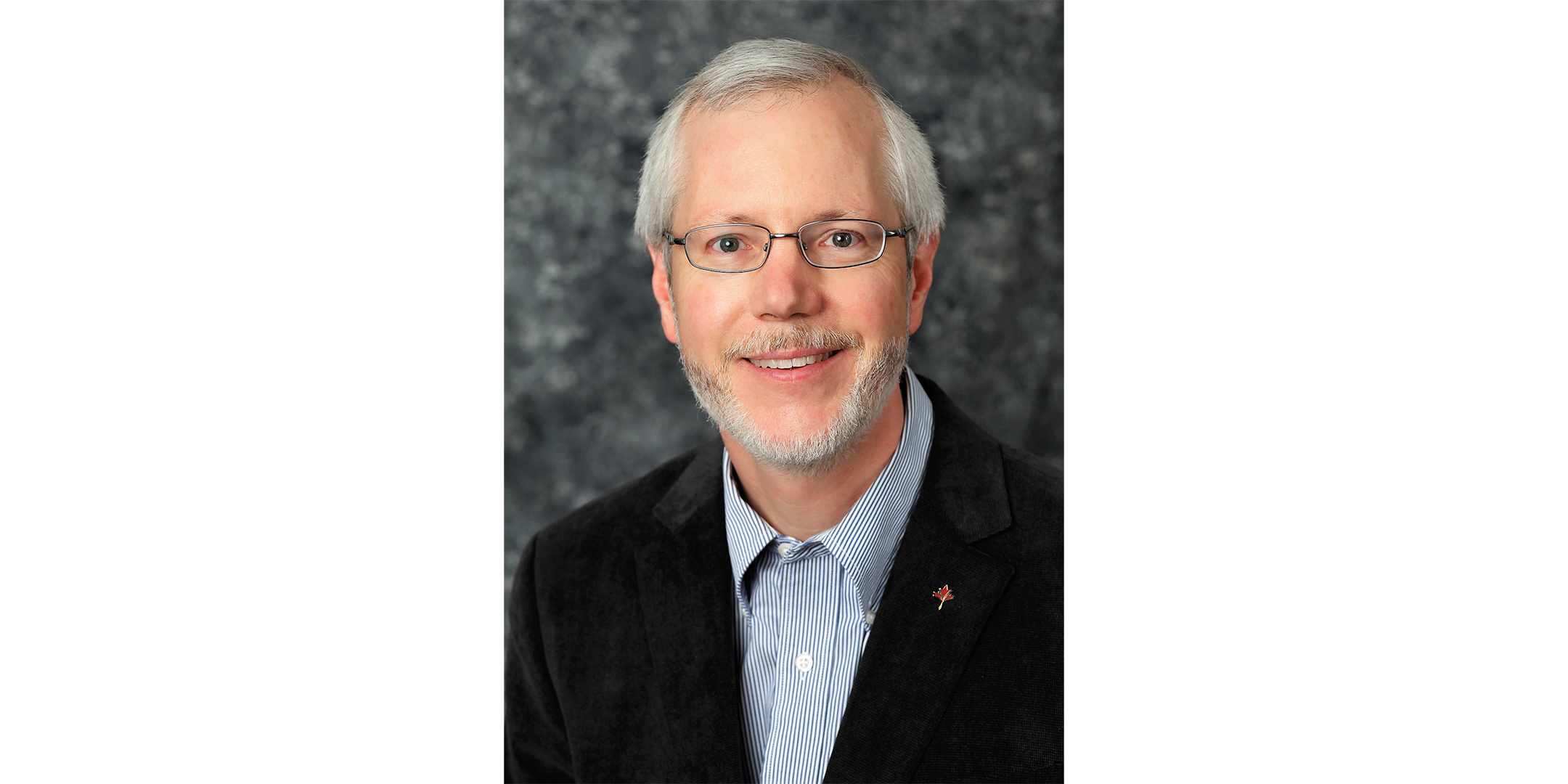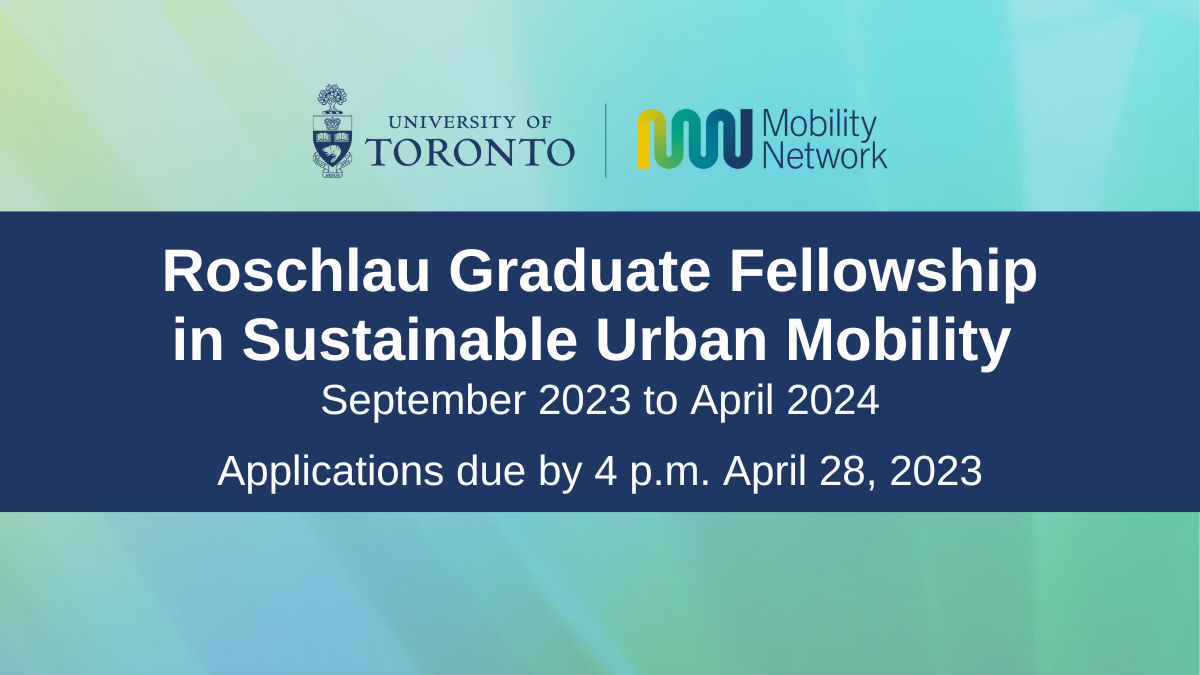Congratulations to Mwendwa Kiko on receiving the Roschlau Graduate Fellowship in Sustainable Urban Mobility!
Kiko is a first year PhD student in the Department of Civil & Mineral Engineering at the University of Toronto, supervised by Professor Eric Miller.
I am honoured and delighted to be the recipient of this year’s award. The Mobility Network has a tradition of groundbreaking, impactful research, and I hope to add my contribution to it through this work.
Mwendwa Kiko
The Roschlau Graduate Fellowship in Sustainable Urban Mobility was established earlier this year by Mobility Network through a donation from Michael W. Roschlau, U of T alumnus and former President & CEO of the Canadian Urban Transit Association, to stimulate innovative applied research, to inform public policy and to assist a student in pursuing their field of study.
Kiko will undertake primary research on his chosen topic, "Electric Vehicles and Gas Stations: Applying a Travel Demand Model to the Study of their Mutual Effects," from September 2023 to April 2024.
The widespread electrification of private vehicles is widely regarded as a necessary condition for the development of more sustainable urban mobility. Globally, the efforts to convert personal vehicle fleets are being undertaken through a variety of mechanisms, for example, the installation of charging infrastructure, through policies such as the Zero Emission Vehicle Infrastructure Program (ZEVIP) in Canada (Government of Canada, 2019). EVs can be recharged at home, unlike Internal Combustion Engine Vehicles (ICEVs); furthermore, outside the home, charging is not restricted to a handful of specific locations, as is the case with ICEVs.
For this reason, some are already predicting the widespread demise of the traditional gas station (Rubeis et al., 2019), a situation that is already playing out on a much smaller scale in places that were early-adopters of EV technology, such as Norway (Lambert, 2019). These first-order effects are so recent in the EV debate that no research has so far addressed the potential second order effects that might exist. Specifically, the widespread switch from ICEVs to EVs is likely to force many retail gas stations to close or stop selling gasoline (the first order effect); the reduced number of retail gas stations is then likely to discourage use of the ICEVs that remain, and even encourage more people to switch from ICEVs to EVs (the second order effect). This study is concerned with that second order effect, and seeks to quantify its magnitude, as well as determine some of the factors that might increase or decrease it. Its outputs will include a policy paper outlining the results of the study and making recommendations.
Description of Roschlau Fellowship research project "Electric Vehicles and Gas Stations: Applying a Travel Demand Model to the Study of their Mutual Effects," by Mwendwa Kiko
The results of Kiko's research will be shared in a policy paper and in a public research seminar organized by Mobility Network.
During my studies and after my PhD, I hope to carry out policy-focused research, notably on the topic of electric vehicles and their uptake, a question at the heart of many of the decarbonization policies here in Canada. The financial assistance you’ve provided to me through this scholarship will help me greatly towards this goal. In addition, the experience of receiving an award like this is by itself greatly validating, and is something that I will cherish going forward.
Mwendwa Kiko
About Mwendwa Kiko
Mwendwa Kiko is a proactive transportation professional who is passionate about the role that transport systems can play in promoting equity and the energy transition, especially in the Global South.
He was recently selected by Engineering for Change, LLC (E4C) as a fellow in the 2023 E4C Mid-year Fellowship program.
Kiko has a Master's degree in Transport and Sustainable Development from Ecole des Ponts ParisTech, Ecole Polytechnique and Mines ParisTech. His specialization is travel demand modelling, and socio-economic evaluation of infrastructure projects.
Prior to this, he worked for two years as a civil and structural engineer with one of Kenya’s oldest local civil engineering consultancy firms.
His long term goal is to be part of Africa’s burgeoning research ecosystem in the transportation field.
About the Roschlau Graduate Fellowship in Sustainable Urban Mobility
The Roschlau Graduate Fellowship in Sustainable Urban Mobility is the first fellowship of its kind at the University of Toronto. It was established in 2023 thanks to a generous donation from Michael W. Roschlau, U of T alumnus and former President & CEO of the Canadian Urban Transit Association.
The $5,000 scholarship is aimed at full-time graduate students in architecture, business, economics, engineering, geography, planning, political science, or related fields, who are pursuing research related to sustainable urban mobility. The fellowship will be offered annually for a period of five years.
Proposed research should incorporate innovative concepts and be relevant to current public policy or practice. Potential research themes could include, but are not limited to, the following areas: Public transit expansion and investment | Public transit operations | Active transportation | Integrated urban mobility | New technology for sustainable urban mobility | Urban development and land use-transport interaction.



